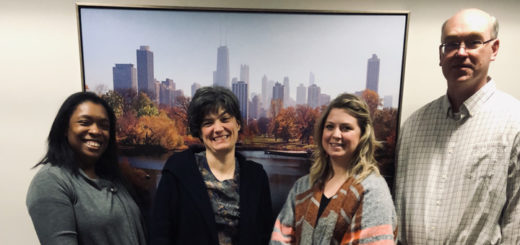New Investigator Research Grant: Eli Puterman, PhD, University of California San Francisco School of Medicine
We recently awarded a new investigator research grant to Eli Puterman, assistant professor at the UCSF School of Medicine for his study, “Improving Caregiver’s Daily Lives with Exercise: A Randomized Study”. With a growing number of adult caregivers throughout the population, Eli’s study will examine whether increased activity benefits previously unfit, high-stressed caregivers and whether this activity also changes caregiver’s stress response biology. Eli hopes through his work to help create “interventions that help larger groups of people all at once”.
In this video, Eli talks about his inspiration to do caregiver research, his current work, and his hopes for the future of caregiver research.
You can read the abstract of his work being funded through the Alzheimer’s Association below. For more about the Alzheimer’s Association research grants program, visit www.alz.org/research.
Abstract: Nearly 40% of adults in the United States are providing critical care each day to a family member on an ongoing basis. This means that more than 90 million Americans provide unpaid care to a loved one, and as a result, experience the undue financial, familial and personal stresses of caregiving. Caregiving often leads to both psychological and physical problems, and research shows that these effects are significantly worse for family caregivers (i.e. a non-professional caregiver) of individuals with Alzheimer’s disease.
Highly-stressed caregivers of people with Alzheimer’s have accelerated biological aging and increased risk for age-related diseases. Yet, these damaging effects of stress are less severe in physically active caregivers. It is unclear if the advantages of exercise in highly-stressed caregivers are a result of “the type of person” who remains active in the face of stress, or a result of the “exercising” driving the benefit.
Eli Puterman, Ph.D., and colleagues propose to study whether previously unfit, high-stressed caregivers benefit psychologically from becoming active, and whether this benefit is derived through changes in how caregivers react to and recover from stressful events. They also aim to determine if alterations in the caregivers’ stress response impact the biological changes induced by exercise.
This proposal examines whether a six-month long aerobic activity training intervention can boost immune function and improve the physical health of caregivers of individuals with Alzheimer’s, and is part of a larger NIH-supported parent study. Results of these studies may provide new insights into the benefits of exercising, and can help advance our understanding of ways to promote psychological and biological health and resiliency in caregivers through a life-style change.
Helpful information related to this story
Alzheimer’s Association Research Center


















I was diagnosed last spring by both Dr. Wendy Eberhardt and Dr Schlagel at Kaider in TerraLinda In San Reafael
I am very intersted in Trials to restore my intelect and confidence
I have been a Special Edicatior forover 30 years, in San Francisco, and Marin County.My Education was at The Universityof Delaware while they collaborated with Universirty California